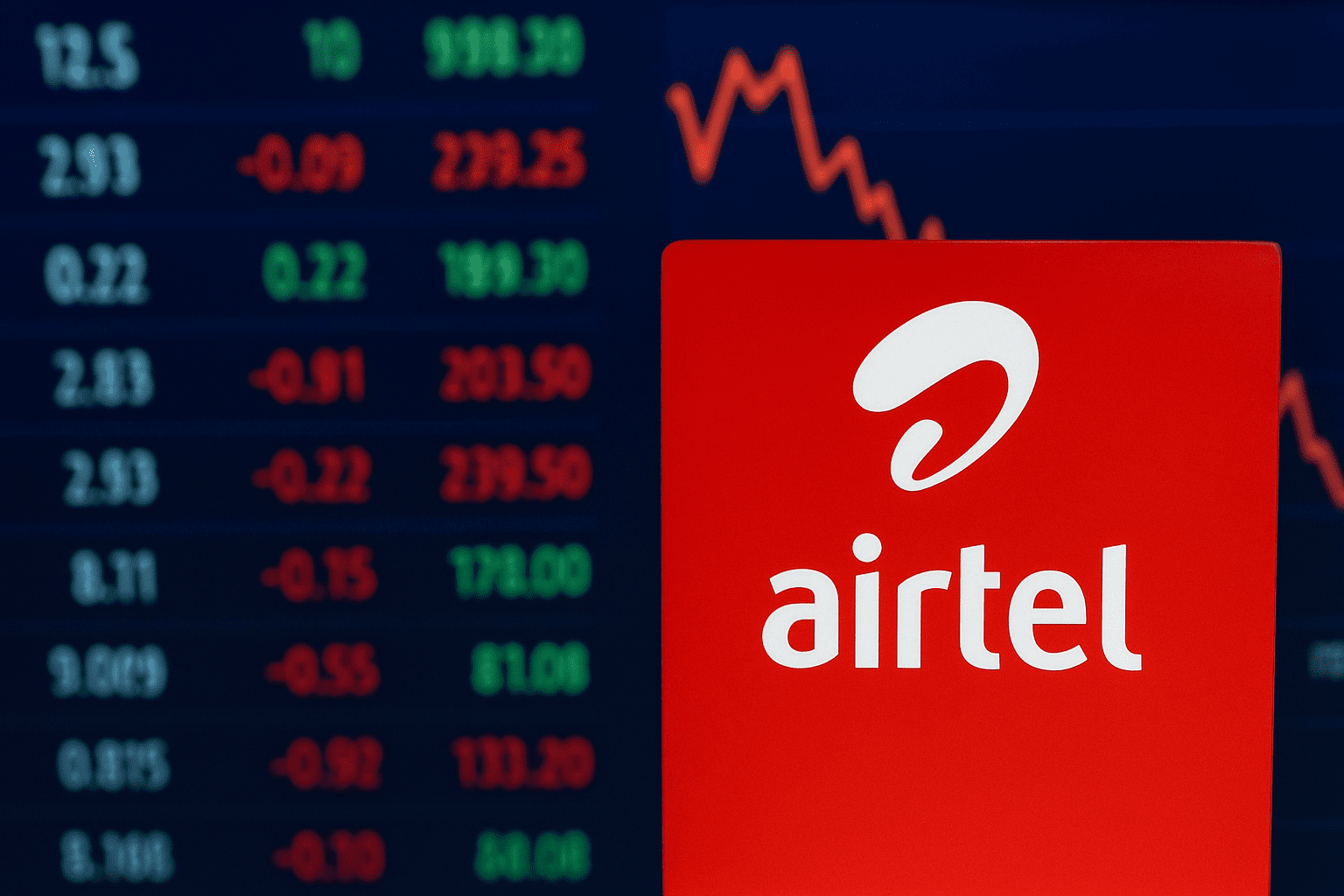Airtel Shares Tumble After Huge Block Deal by Singtel

Bharti Airtel's stock opened sharply lower as a massive stake sale by Singapore Telecom triggered a wave of selling. The slump comes even though the company posted strong earnings and healthy subscriber growth. What’s happening is less about business trouble and more about the mechanics of a big sell-off and how markets interpret it. For retail and institutional investors, this sharp drop raises questions: Is the decline just a blip or the first sign of underlying caution in telecom?
Background & Context
Airtel has been riding a wave of positive momentum—robust earnings, improving ARPU (average revenue per user) and an expanding 5G footprint. Yet large block trades by major shareholders have a history of shaking investor sentiment in Indian markets. In this instance, reports indicate Singtel’s unit sold about 5.1 crore shares (approximately 0.8 % of Airtel) at a floor price of ₹2,030 per share—roughly a 3.1 % discount to the previous day’s closing price. This kind of off-loading often leads investors to question the timing or motives behind the move.
Key Facts / What Happened
- On 7 November 2025, Airtel shares dropped as much as 3.7–4.5% in early trade, with some intraday low readings near ₹2,000 per share.
- The deal saw over 51.3 million shares trade hands, valued at around ₹10,450 crore.
- The block deal was executed at a discount to the market price and was reportedly orchestrated by singular institutional brokers.
- Analysts note that the selling pressure appears to be driven by supply shock and not by any new adverse corporate development.
Voices & Perspectives
Markets veteran Anshul Jain from Lakshmishree Investment noted the sudden volume spike “signals broad-based institutional participation, suggesting this isn’t just retail panic but a structural move.”
According to a blog analysis from INDmoney, while business fundamentals remain strong, “large shareholder exits create short-term pressure despite no change in company performance.”
Implications
For consumers, the slide might not have immediate impact—Airtel continues to roll out 5G, expand broadband and refine services. But for investors and the industry, the event raises red flags about stock liquidity, ownership dynamics and how large block deals can distort valuation temporarily. For the telecom sector, where regulatory, competition and capex‐intensive risks loom, these sentiment shifts can ripple into cost of capital or investor appetite.
What’s Next / Outlook
Investors will be watching Airtel’s upcoming earnings commentary, any board disclosures regarding the stake sale and whether similar moves surface from other marquee shareholders. If more block deals occur, the broader telecom space could face renewed volatility. Analysts suggest the next few trading sessions will test whether this drop is a brief correction or a warning sign of cautious sentiment ahead.
OUR TAKE
The drop in Airtel’s shares underscores how market mechanics—especially large block sales—can override strong business fundamentals in the short term. For the telecom industry, it highlights the delicate balance between growth narratives and investor psychology. In future, how these large transactions are communicated may matter as much as the underlying business performance.
Wrap-up
While the fundamentals of Airtel remain intact, the market’s sharp reaction to the stake sale signals investor sensitivity in India’s telecom sector. How the company and its stakeholders respond will shape sentiment in coming weeks.